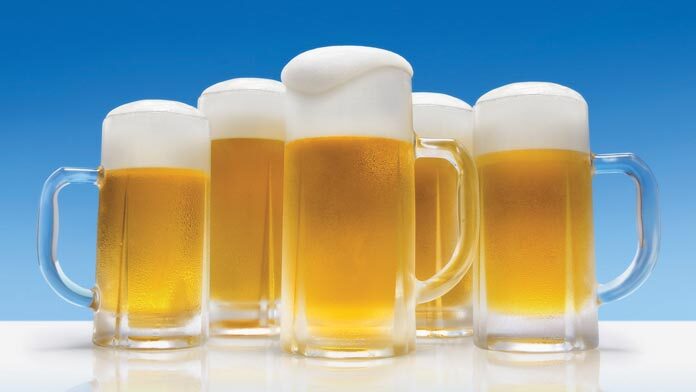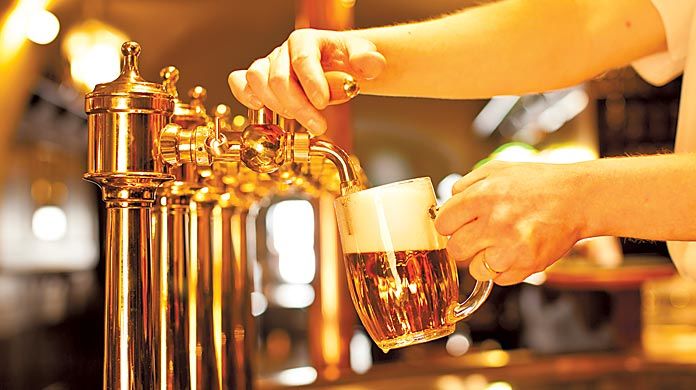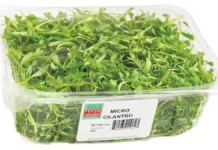
Three of Connecticut’s 20 largest craft brewers are expanding their operations in response to recently passed legislation that some industry experts call the most significant liquor reforms since the Prohibition era.
Bloomfield-based Thomas Hooker Brewing Co., Hartford’s Hog River Brewing Co. and Manchester’s Labyrinth Brewing Co. are among the first Connecticut brewers adding square footage, new equipment and selections, in part, because of last month’s passage of Senate Bill 647, which more than triples the amount of beer a customer can purchase at breweries for off-site consumption, allows the cross-selling of in-state alcohol products like wine, liquor, meads and hard ciders, and consolidates the liquor permitting process.
Gov. Ned Lamont, legislators and brewery advocates celebrated the bill’s final passage over beers last month in Milford, claiming it will spur new opportunities for Connecticut’s 92 operating breweries, which contribute an estimated $3.1 billion annually to the state’s economy. “This sets a large precedent on our beer industry to provide a larger economic impact for the state that facilitates business growth, job growth, long-term sustainability and both in- and out-of-state tourism,” said Sean O’Neil, co-founder of Tribus Beer Co., which hosted last month’s bill signing ceremony. “We are more than pleased to see this step in the right direction.”
The reform talks took place earlier this year with an unprecedented, even awkward meeting at Thomas Hooker Brewery’s Hartford taproom at the Colt Building between brewers and special interest groups representing distributors, wholesalers and restaurateurs. The parties, like in other states, have been at odds for years, unwilling to compromise on legislation that would revamp Connecticut’s outdated, and often restrictive, liquor laws. But the brewery industry had more leverage this year due to its recent growth, among other factors, according to Phil Pappas, executive director of the Connecticut Brewers Guild.
Connecticut breweries currently support more than 21,000 jobs in the state and generate a large source of revenue for wholesalers and distributors, industry experts say. Beer production has also soared from 23,372 barrels in 2011 to 213,606 in 2018, according to the Brewers Association, which represents 62 breweries in Connecticut. And those tallies are expected to get bigger. There are more than 100 Alcohol and Tobacco Tax and Trade Bureau permits pending in Connecticut, which experts say indicates how many entrepreneurs are planning new brewery sites.
“The ability to sell more beer and have more licenses were such a huge win,” said Thomas Hooker Brewery owner Curt Cameron.
Although Connecticut’s brewery industry is peaking, some brewers fear the market is becoming oversaturated as the state quickly approaches 100 operating brewers. Meantime, some brewers are concerned about the added costs they will incur as a result of the new law.
Mark Szamatulski, who owns Veracious Brewing Co. in Monroe with his wife, Tess, said he may close his taproom within the next year because the new liquor law will force his brewery to shoulder an additional $3,800 in annual costs. That’s because the law gradually increases fees under a new permitting structure, which consolidates four manufacturer beer permits into one and establishes a “Connecticut cafe permit” allowing the cross-selling of alcoholic products. The law also adds a new alcohol excise tax of $7.20 per barrel (typically 28 gallons) for taproom sales on amounts over 15 barrels. Breweries were previously exempt from paying that tax.
The changes were part of several compromises the Connecticut Brewers Guild agreed to in exchange for allowing brewers to increase from nine liters to nine gallons the amount of beer they can sell individual customers daily for off-site consumption. Scaled permit costs were also meant to create a more level playing field with the restaurant industry. “We didn’t need a cafe law,” said Szamatulski, who was already allowed to sell out-of-state liquor and wine under his current permits. “I would love to keep the brewery going but I have real doubts about what bills are coming up next year. I have to renew my lease eventually, and I don’t know what I want to do.”
 Pappas says the benefits of increased beer sales far outweigh the additional costs from scaled permitting and the new excise tax. After all, Connecticut ranked No. 48 in the U.S. for the amount of beer breweries could sell to patrons for off-site consumption prior to the law change. Meantime, states like Maine, Massachusetts and Vermont have no limits.
Pappas says the benefits of increased beer sales far outweigh the additional costs from scaled permitting and the new excise tax. After all, Connecticut ranked No. 48 in the U.S. for the amount of beer breweries could sell to patrons for off-site consumption prior to the law change. Meantime, states like Maine, Massachusetts and Vermont have no limits.
“We are still toward the bottom, but obviously we have a lot of people to think about when we are increasing sales limits,” said Pappas, who suggested brewers will likely push for higher off-site sale limits next legislative session. “We will see how it goes, and see how it impacts the market. I think it will be good for all parties.”
Anticipating major liquor reforms, Cameron, of Hooker Brewery, has nearly completed a major $1 million infrastructure rebuild of his 36,000-square-foot Bloomfield facility, adding new cooling systems, fermentation tanks and a centrifuge machine, which separates solids from beer. The renovation includes adding a $150,000 commercial kitchen that will serve pizza and other food offerings currently sold at Hooker’s Hartford taproom. Cameron spent an additional $700,000 buying a 30,000-square-foot manufacturing/warehousing facility behind his Tobey Road headquarters in Bloomfield for beer production and storage.
Liquor reforms that allow cross-selling of products, Cameron said, is the biggest benefit for Thomas Hooker, which annually produces 15,000 barrels and sells the majority of that through wholesalers. Cameron isn’t sure which alcoholic products Thomas Hooker will add, but he said he’s intrigued about being able to sell meads, hard ciders and cocktails. “It’s all about creating options for the consumer and this really opens up the possibilities,” Cameron said of the liquor reforms.
Almost five miles south, Hog River Brewing in the Parkville neighborhood of Hartford recently acquired a 3,500-square-foot space that will be dedicated for a 100-seat private event area later this summer. The brewery, which currently produces 500 barrels a year, will also be able to manufacture more than 1,000 barrels in 2020 when it more than doubles its brewing footprint later this year. That expansion will cost $150,000. Ben Braddock, who co-owns Hog River Brewing with his wife, Joy, said their business will also start to offer additional locally-produced products in their taproom to pair with their current offerings of craft beer, hard cider and wine.
“Increasing the limits for per-person sales is huge for us,” Joy Braddock said. “It’s hard to run a business when you’re told what you can’t do all the time.”
In Manchester, the three co-owners of Labyrinth Brewing Co. aren’t worried about the new excise tax, even though the change will be costly for the one-year-old brewery because their taproom accounts for 95 percent of overall sales.
The brewers are also looking to cross-sell its craft beer products with other area wineries and cideries to continue pushing its brand in the region. Evolving its offerings will be key for Labyrinth to stay relevant and grow, Delaura said.
“Nobody likes to pay more taxes, but are we going to live? Yes we are,” he said. “I think if we could push into cideries, wineries, meaderies and craft distilleries, this all makes it a lot easier to get our name out there.”























